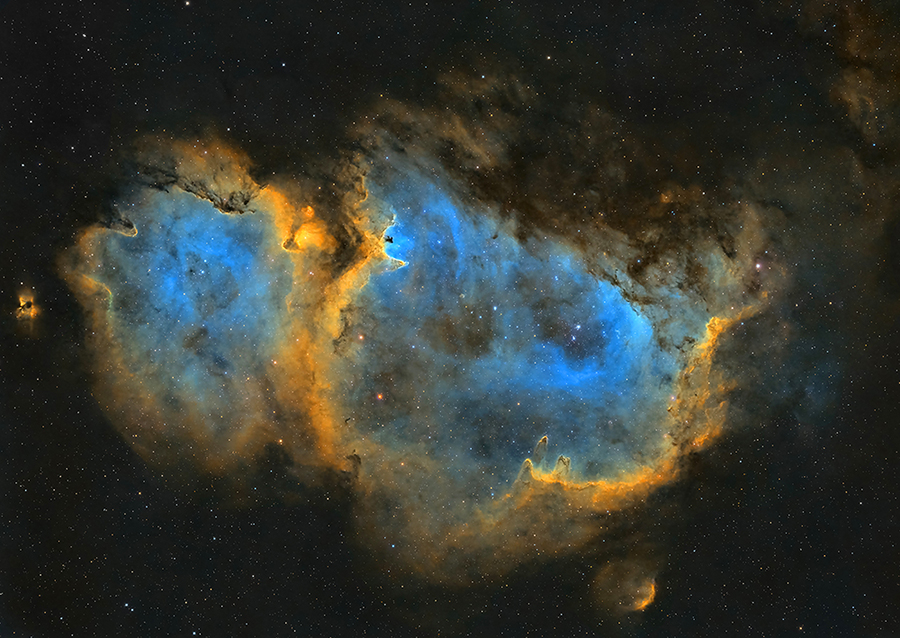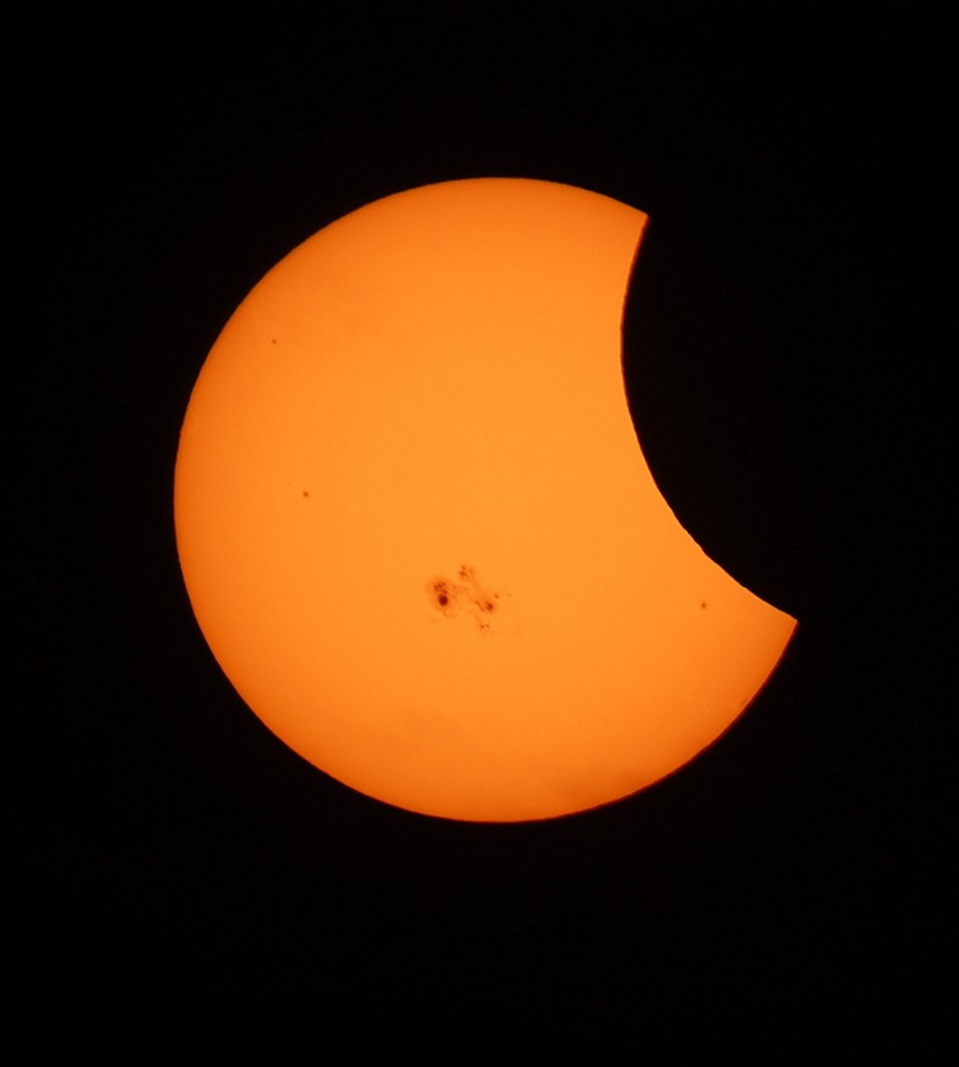
Massimo Difusco / S&T Online Photo Gallery
It’s never too late to cultivate passionate interest.
Ideally, we find our way to what we really and truly love when we’re mere babes, setting ourselves up for a lifetime of enjoyment. But many of us don’t stumble onto a singular subject or activity that speaks to us until later in life. Often, our interests shift along the way.
For me, it was a matter of timing. I’d long been keen on astronomy, but it was more of a diversion of opportunity. A new comet or space mission would capture my attention, to be replaced again by the many other concerns of living. That desire to look up never went away, but it got shoved to dusty, forgotten corners until I started to assume I’d missed my chance.
It was the drive for solace and relief during the pandemic that finally sent me outside at night on a consistent basis. But still I wonder, “What if I had started earlier?”
There’s a movie I sometimes play in my head when I’m trying to fall asleep. I’m a middle schooler, being driven by my mother to my hometown science museum, where my summer planetarium class is gathering for an evening star party with the local astronomy club.
This happened in real life, except the weather didn’t cooperate and my class went to a diner for milkshakes instead of glimpses of the Milky Way. It would be decades before I attended another star party, after moving to Oregon.
In my pre-sleep movie, however, the skies are clear. I look through a telescope to see Jupiter, Saturn, and maybe the Butterfly Nebula for the first time. Someone tells me I can use binoculars to stargaze in my backyard, and I resolve to borrow my father’s and start right away.
From there, I imagine the programs and clubs I might have chosen — or founded — in high school. The equipment I might have built, starting rough but improving in sophistication and precision. The wholly different path my life might have taken as a stargazer or even a professional astronomer.
Surprisingly, this reimagining doesn’t make me feel wistful or frustrated, because there’s nothing stopping me from embracing the same activities and discoveries today.
Unlike many other hobbies and pursuits, stargazing is open to all stages of life. There’s no penalty for making a late start, nor shame over long gaps in my night-sky resume. My participation may yet wax and wane with the weather, my health, and *gestures broadly at the world.* But while activities like rock climbing and curling — yes, I was once on a curling team! — have fallen away as I’ve grown older, astronomy will be with me through my dying breath.
One of the saddest conversations I’ve had with any adult was a birthday lunch with a close relative. For years, she’d aspired to a second act as a globe-trotting writer. She was nearing retirement age, and I encouraged her with the gift of a guidebook on travel writing.
Instead of excitement, her face fell. “No, I’m too old for that now,” she said. “That dream is dead.”
That was more than a decade ago, and I still feel crushed by that conversation. For whatever reason, sometimes joy is postponed. But it doesn’t have to be put off forever. Joy brings meaning to our lives and connects us with others. We all deserve this bliss.
It’s easy to recommend stargazing because of the low barriers to entry. You can start today — well, tonight, assuming the weather is good — without any studying or equipment.
Certainly, you can take classes and earn degrees in astronomy, but you can appreciate the night sky without them — no matter how long it’s been since you last looked up. Yes, a good telescope and binoculars will offer closer, more detailed views of celestial targets, but there’s plenty to see and enjoy with the naked eye.
My relative has done a fair bit of traveling in her retirement, but I don’t know if she’s been writing. I hope she has. Finding that spark that makes your soul sing and fanning it into a steady flame can warm you for a lifetime, no matter when you begin.
Making room for astronomy in my life has felt like coming home — as if the universe has left a literal light on, waiting to welcome all of us as we find our way back to what comforts and nourishes us.
The stars are waiting.
 5
5









Comments
gokidd
October 12, 2023 at 1:45 pm
Lovely thoughts, Jennifer.
Well done.
You must be logged in to post a comment.
Jen Willis
February 1, 2024 at 4:41 pm
Thanks!
You must be logged in to post a comment.
Anthony Barreiro
October 21, 2023 at 12:24 am
Thank you for this! I admire your acceptance of the path your life has taken, and your commitment to finding joy in the present moment.
I didn't get serious about skywatching until I was 40 years old, in 2000. It's been a serious passion ever since. My biggest regret is that I didn't see any of the bright comets of the late 20th century. I hope there will be at least one more glorious huge naked-eye comet while I'm still able to see it.
You must be logged in to post a comment.
Jen Willis
February 1, 2024 at 4:43 pm
I have similar regrets — like not trying harder to see Halley's Comet when it swung past when I was a teenager. But then when I worry about missing out on these glorious events, I go look at the latest images from JWST and Hubble, and that makes me feel better.
You must be logged in to post a comment.
Allan-Abrams
November 25, 2023 at 4:09 pm
Jennifer,
I am quite touched by how you write about the wondrous way we can be affected by views of the clear & dark night sky (AKA Wow!, awe, ineffable joy, an opening of consciousness on a spiritual level, etc.). I awoke to awareness of the beauty of the night sky during a mountain camping trip at age 13, some 73 years ago. It still amazes me that words, whether in prose or verse, can poetically express the emotions and intellect of our views of the universe through the window of a clear night sky.
I want to encourage you to continue writing, for yourself and/or others, about the experience of mindful stargazing. No math required (though some of the metrics, from our Earthly perch, can give the experience lots of oxygen).
Allan Abrams
You must be logged in to post a comment.
You must be logged in to post a comment.